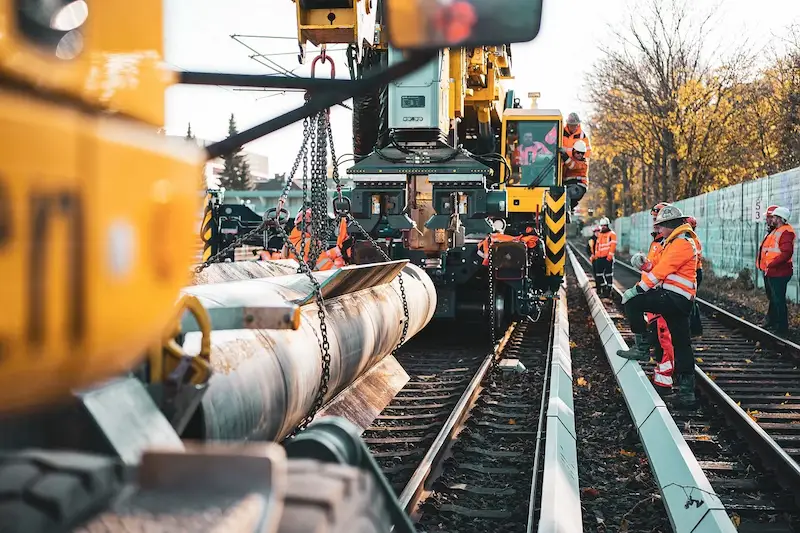Table of Contents
Tackling large-scale projects requires careful preparation and the right tools. Whether it’s a massive construction site or an industrial dredging operation, the equipment you use has a direct impact on efficiency, safety, and project costs. By making informed decisions about machinery, you can ensure your operations run smoothly and successfully.
Understanding Your Project’s Needs
Choosing equipment starts with a detailed understanding of your project. Different tasks require specific machinery, and the type of equipment you choose must align with the unique demands of your work. Consider:
- The Scale of the Project: Large-scale operations, like constructing high-rise buildings or major infrastructure, demand powerful machinery such as tower cranes or large excavators. Smaller projects may only require basic tools and compact machines.
- Environmental Challenges: Projects in waterlogged areas or on uneven terrain may need specialized equipment to handle unique challenges effectively.
- Time Constraints: Tight deadlines often call for high-performance machinery that can operate continuously without frequent maintenance or delays.
A clear assessment of these factors will help you identify the best options for your specific needs, avoiding unnecessary costs and complications.
Efficient Solutions for Industrial Pumping and Dredging
In industries like mining, construction, or flood management, efficient pumping systems are essential for moving liquids or handling sediment. Selecting the right pump ensures reliable performance even in challenging conditions. The team behind DAE Pumps says that consulting experts in industrial pumping can help identify the best solutions for specific applications. For example, dredging operations may require pumps that can handle abrasive materials, while dewatering a flooded area might prioritize efficiency and portability. When evaluating pumps, consider their capacity, durability, and ease of maintenance. Look for energy-efficient models that lower operating costs without sacrificing performance.
Balancing Quality and Reliability
Investing in high-quality equipment is one of the most critical decisions for any large-scale project. Poorly built or unreliable machinery can lead to breakdowns, delays, and safety risks. Prioritize equipment from manufacturers with a strong reputation for reliability and performance.
A high-quality machine not only reduces the likelihood of mechanical failures but also increases productivity and ensures the safety of your workforce. Before committing to a purchase or rental, assess the equipment’s track record, materials used in its construction, and customer reviews.
Renting vs. Buying: Which Option is Best?
One of the most debated decisions in project planning is whether to rent or buy equipment. Each option has distinct advantages:
Renting allows you to access the latest technology without the upfront cost, making it ideal for short-term projects or specialized tasks.
Buying is better suited for long-term or recurring projects, providing more control and customization options while eliminating repeated rental expenses.
Your choice will depend on the nature of your project, the duration of use, and your budget. Keep in mind that renting can provide flexibility, but ownership gives you greater freedom to adapt the equipment to your needs.
Technology as a Game-Changer

Modern equipment often incorporates advanced technology to improve performance, safety, and sustainability. Innovations like telematics, automation, and energy-efficient systems can provide a competitive edge in large-scale projects.
For example, GPS systems allow for precise equipment positioning, reducing waste and increasing efficiency. Similarly, automated machinery minimizes human error, and energy-efficient designs reduce fuel consumption, saving money and lowering environmental impact. When exploring equipment options, prioritize models with features that offer tangible benefits for your specific operations.
Collaborating with Trusted Suppliers
Partnering with a reliable supplier can simplify the process of selecting and acquiring equipment. Experienced suppliers often provide expert advice tailored to your industry and project needs. They can also offer flexible financing options, training, and after-sales support.
Before committing to a supplier, research their reputation, customer service record, and available warranties. A trustworthy partner will help you optimize your equipment choices and keep your project running smoothly.
Ensuring Compliance and Safety
Safety is paramount in any large-scale operation. Using machinery that complies with safety regulations not only protects workers but also minimizes legal liabilities and project delays.
Evaluate equipment for features like anti-collision systems, emergency shutoffs, and ergonomic designs. Regular maintenance and proper training for operators further ensure that machinery remains safe and effective throughout its use.
Choosing the right equipment for large-scale projects requires careful thought and planning. By understanding your project’s unique demands, prioritizing quality, and embracing technological advancements, you can ensure efficient and successful operations.
Whether you’re managing an industrial site or planning an infrastructure project, the tools you select will define your outcomes. With reliable equipment and trusted suppliers, you can achieve your goals while staying on time and within budget.
Want to explore something different? 6 Tips for Setting Up a Smart Home System That Works

